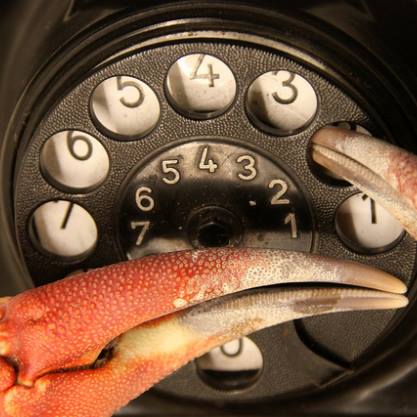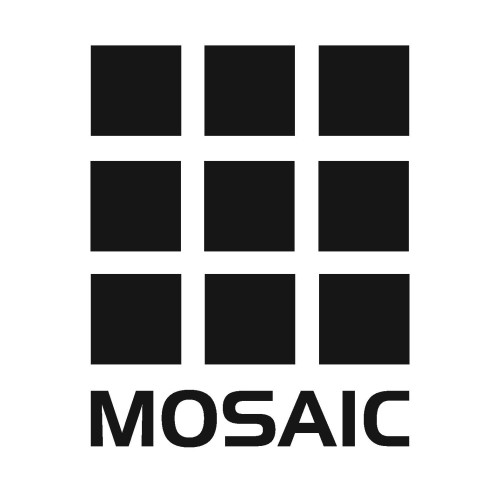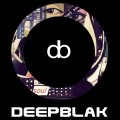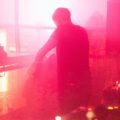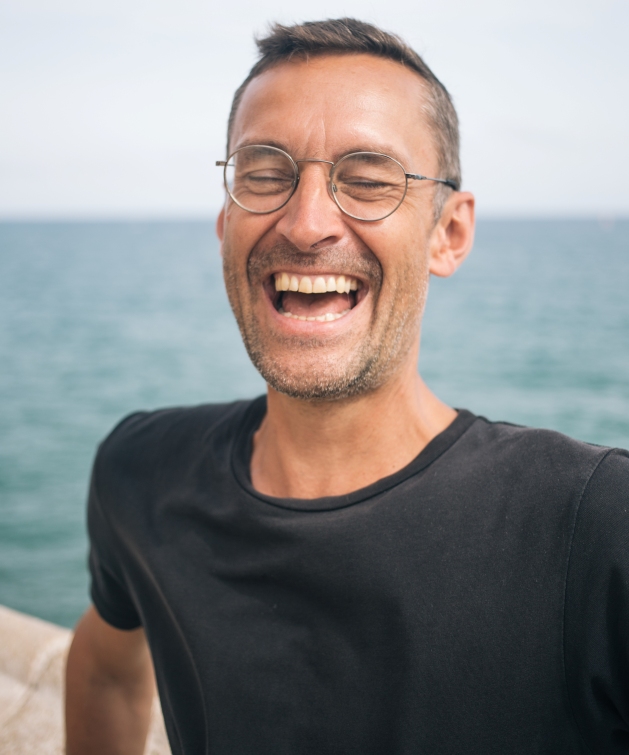
With a career in music that spans more than two decades, Matthew Puffett is the magic maker behind one of the UK’s long standing electronic music projects “Future Beat Alliance”
No stranger to the ups and downs of the music industry, Matthew Puffett is undoubtedly one of UK’s most understated electronic music producers. Hailing from Oxford, his production career began in 1996 with a string of now sought after releases on Void Records, using the aliases Mode-M and Soul Electrik, before settling on the pseudonym that would go on to host the majority of his work: Future Beat Alliance.
Since those early days, he’s continued to record under the same name and release music on defining labels such as Ferox, Tresor, Delsin, Rush Hour and Versatile – all with little to no fanfare. Ever consistent in his interpretation of heart warming machine made soul, his ability to stamp his take on things rarely falls short of brilliance and bliss.
Based in Berlin these days, he’s also not one for resting on his laurels or sitting still for too long. After becoming the main programmer and engineer for James Lavelle’s UNKLE project in 2012, he has gone on to co-write and produce music for a much bigger stage. Seeing his work cross over into Film, TV and the world of Advertising – as well as putting his touch to various remix projects. Through all of his recent endeavours – Puffett has remained very much true to his roots, still with plenty to say as an artist; having chosen to reboot his own FBA Recordings imprint back in 2017 after a short hiatus.
With various things bubbling under the surface, we thought it as good a time as any to reach out and track him down for a chat, to dig further into his world:
You grew up in Oxford right?
“Indeed… Oxford is a very beautiful part of England, I guess you always really take where you live for granted when your growing up and never really look at where you are living properly, but I appreciate it a lot more now when I go back to visit my family, who still live there.”
How did you initially get into music?
“I got heavily into music mainly through Hip Hop culture being fed into the UK from America in the early 80s, hearing Africa Bambatta and The Soul Sonic Force ‘Looking for the perfect beat’ for the first time on cassette was like something from another planet. Also, my older brother was heavily into soul music, he would record this weekly radio show by Robbie Vincent and play it all week in his room. I still have the ‘Perfect Beat’ cassette which I’m going to get box framed soon.”
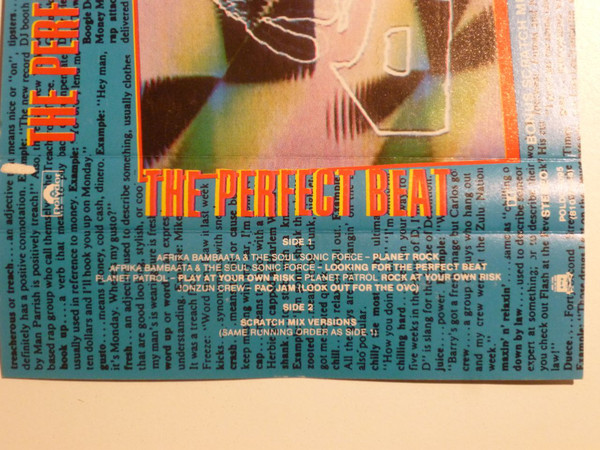
Who were your biggest influences as a youngster then?
“My friends who I was hanging around with… for good and for bad. I got into all sorts of trouble, it’s where I was introduced to and discovered everything for the first time.”
What lead you to the world of electronic music and techno ?
“Certain older friends who I was hanging out with played me early Detroit Techno and Acid House Records, also I was just old enough to live through and experience the back end of the Acid House explosion in the UK. I went to a lot of the big parties in fields and clubs for the first time, came home and did all the research into what I just experienced. I just became more interested in what I had heard and how it was made. Fatefully, I sustained a back injury when I was younger which wasn’t my fault so me and my father sued the company with a lawyer. We won the case and gained a nice sum of money which enabled me to invest in all my recording equipment and start mucking around with ideas.”
You did a lot of record shopping in London back then, what were your favourite haunts?
“When I got into hip hop, I would travel into London and head straight down Carnaby Street to a shop called 4 Star General, then on to Beak Street into Red Records, where they would specialize in US hip hop imports amongst loads of other interesting stuff. The main guy behind the counter would be really intimidating but playing loads of crazy stuff to a packed shop and you had to put you`re hand up if you wanted a copy! God, I was so nervous as a kid from out of town, but you did what it took to get hold of the fresh tunes, you’ve also got to remember this was all pre-internet so the only way of hearing the music you wanted was through radio. Tim Westwood was a huge influence on me back then, he had a show called the Capital Rap show on London’s Capital Radio. I was living in Oxford so it was very difficult to get good radio reception, I used to hold this wire up to get a half decent reception on Friday nights and make my record lists, then travel into London on Saturday on the hunt.
Years later in the early 90s, all the Electronic/Techno music was fed to me through Colin Dale’s Abstract Dance on London’s Kiss FM which led me to Fat Cat records in Covent Garden. This was a central London basement meeting point shop which specialised in all things obscure, Electronic, Detroit Techno Soul, Dub, Ambient, lock groove action along with lots of other treats they used to bag up for me. I was still living in oxford at the time and I would travel into London once a week to visit the shop, to be greeted by Mr Lee Grainge who would be sitting up stairs in the clothes shop hanging his head out the door smoking a fag. He would say, ‘I’ll be down in a minute mate, I’ll sort you out…’ and he always did with fresh Drexciya records, loads of Detroit and UK Electronica amongst other obscure beauties. Co-founders Dave Cawley and Alex Night continued with Fat Cat (the record label) when the shop closed its doors in 1997. The Record label is still going strong with the same diverse vision today, fine memories.”
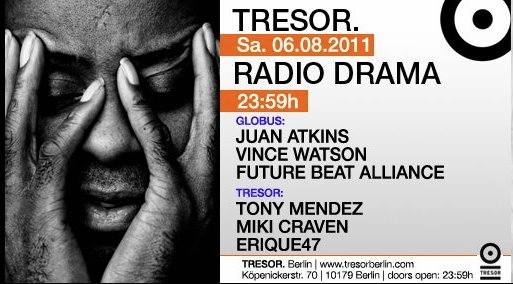
Did you get into the whole dj’ing/party/promotion side of things?
“No, I never really got involved in the party/promotion side of things in the early days but just after I moved to Berlin in 2010 and started recording for Tresor, I was offered a night at Tresor club alongside Vince Watson. Vince sent me an email just after he heard my release and asked how I’d managed to get a release on the label. So, I hooked him up with the label A&R manager at the time Simon Ashcroft. Simon suggested we start a club night, Vince came up with the name Radio Drama, which was named after one of my tracks I’d recorded for the Suicide Records label years back. We had a monthly Saturday night in the Globus room.”
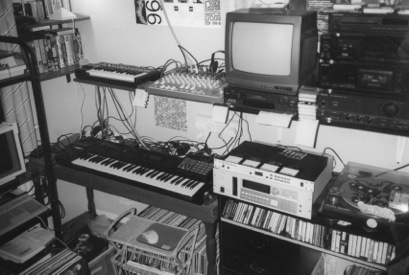
When did you decide you wanted to have a go at making and shaping your own sounds?
“It was around this time, just before discovering Fat Cat Records, this was the icing on the cake coming home with all these incredible records, it was such an inspiring time and a scene I desperately wanted to contribute to.”
What sort of set up did you first start with?
“I started out with a Roland W30 sampling work station, I didn’t have clue how to use it, but I managed to bodge these tracks together in my own little way, this actually taught me the beginning of song arranging. None of these experiments got released but I still have all the recordings on cassette, I found them the other day at my parent’s house.
Years later, when I received my compensation money I bought the Akai S3000i sampler, Atari Falcon 030 computer running Cubase, Boss dr660 Drum Machine, Oberheim Matrix 1000, Alesis midi verb 4, Zoom 1201 multi FX, Soundcraft Spirit Folio 12 Channel mixer and a DTC 700 Sony DAT Recorder. I still have the Akai 3000i and The Atari 030 but I should add I currently use an Apple Macbook Pro 15”, Audient ID44 Audio interface and a pair of headphones.”
How did you get involved with releasing your music through Void?
“It was when I was just about to move out of my parent’s home for the first time and move in with my old school buddy Justin Winks. He suggested starting a label to showcase what I’d been working on, I knew nothing about running a label or the distribution side, Justin had more of a business/graphic design head on and sorted out the label logos and a distribution deal. That was the start of Void Records and my first 12” vinyl release Mode-M ‘Space Based / Cohesion’, I was living in a converted double garage which we turned into a studio, live space, knocking out demo after demo. We had a great system, Justin was upstairs in the office and I was in the studio/garage downstairs. Local friends, drum & bass duo “Total Science” also released on the label and used come over to get up to no good, it was a lot of fun.”
At what point did you feel you were starting to get wider attention?
“I’m not quite sure, I don’t really pay attention to much of that, the majority of my releases have happened naturally. I used to send tons of cassette demos out in the early days but after having void records as a home for my music, a lot of interesting labels across Europe started to get in contact and things snowballed naturally.”
Why did you decide up sticks and move to Berlin?
“A few music related friends moved there around 2007 and I would always pop over for a bit of a rave holiday/hangout. Then another mate who was there suggested me moving over, fast forward 10 years…”
How would you say it’s shaped your outlook and approach to things?
“If anything it`s made me more chilled, I still love the vibe over here, I wouldn’t say being in berlin has changed my sound or the way I make music, if anything I would say it’s slowed me down. I have no sense of urgency.”
You’ve had a very steady approach to your output over the years – is that more by accident than design (or vice versa)?
“I just love experimenting with sound and the whole long process of working on a piece of music, in my head I always have this big picture of what it’s going to be like, this can go on for weeks and weeks living with it, almost to the point of not letting it go.”
What would you say are your favourite pieces of work (and why they’re important to you)?
“That’s a difficult one really because I don’t really listen back that much once I have let them go, I invest so much of my time in the process of creating the things, but saying that I’m really proud how the Black Acid record turned out recently for the Exalt Records label.”
Did you ever think you’d be still making electronic music 20+ years on?
“As I said 25 years ago to my mum, it’s not a hobby mum… it’s much deeper than that.”
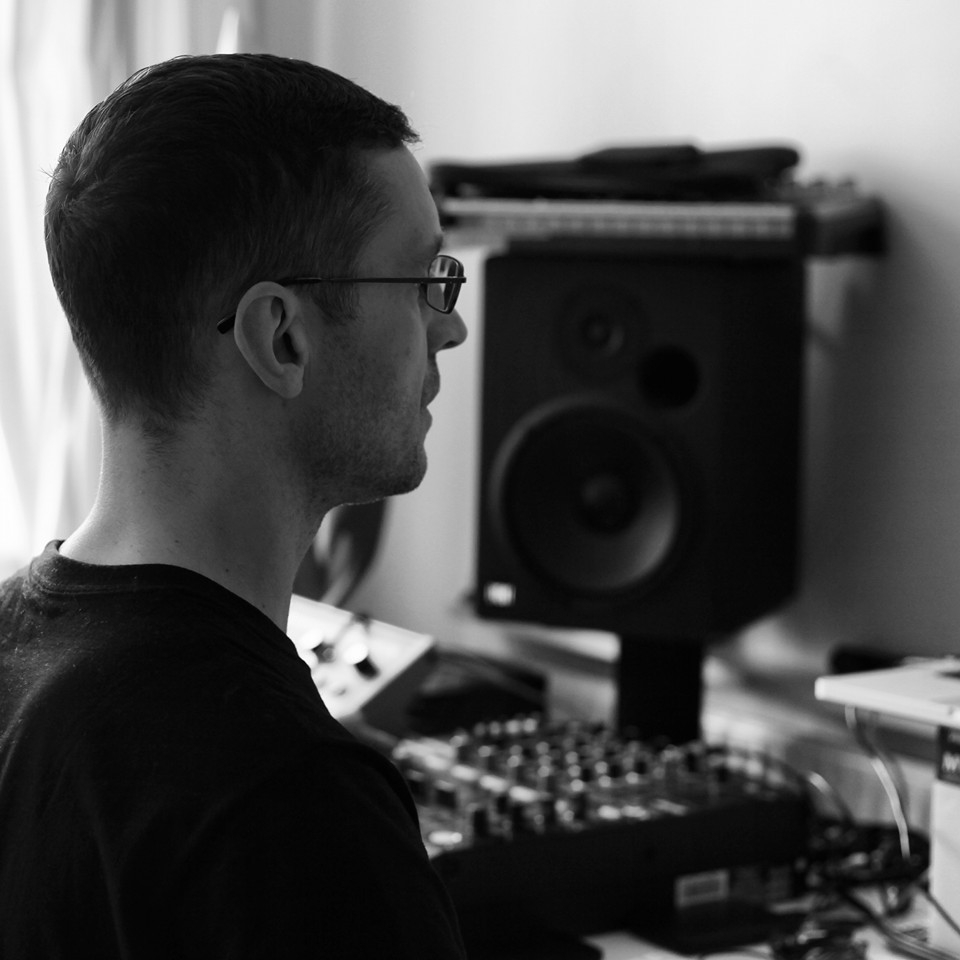
You’ve been working quite closely with James Lavelle since 2012, how did this come about?
“James is one of my oldest friends, we used to hang out together when we were kids in Oxford, we were all part of this little crew. We played our first DJ gig together and went to loads of raves in fields. Eventually, James moved to London to work at a record store called Bluebird Records, then to Honest Johns, it was around this time he started Mo`Wax. We lost contact for a few years with the success of Mo Wax but I used to visit him from time to time in the mid 90s. I’d pester him at the Mo Wax office with cassette demos pushing for a release on the label, it never materialized in the end for some reason.
I reconnected with James when he started his club night with Giles Peterson ‘That’s How It Is’. It was such an amazing night where he would play early Black Dog and Carl Craig records next to Jazz, and just about everything in between. It was on Monday nights on Shaftsbury Avenue and was always packed, it was such an inspiring time. We kept in contact over the years and eventually started collaborating together on various film projects and commissioned UNKLE remixes. After a while, he then asked if I wanted to be on board to co-write and engineer an UNKLE album, which became The Road Part 1.”
What’s been your biggest achievement with him to date?
“Definitely working on ‘The Road Part ‘1 with Jack Leonard, Cameron Craig and James, it was such a laugh and a big learning curve. I’m so proud of what we all created, that and also winning the Music Producers Guild award twice for remixing various pop bands.”
Techno seems to be finding it’s voice again, how do you feel it’s shaping up in 2019?
“I think it’s healthier than ever with loads of really interesting artists and labels out there, but I think it probably looks a lot bigger than it actually is due to social media and all these chat groups. It’s still such a small scene, within a scene.”
What are you currently listening to?
“I’m currently listening to the last thing I was working on the night before and then sticking on BBC 6 Music for a breather, or jumping into an Andrew Weatherall show on NTS radio.”
Last but not least … what do you have planned for the year ahead?
“On a musical note, I’ve just started a new label called Reward System, it’s going to be a long running EP series and nice little home for me to release my music on. The first release is out now and I’ve also got a single coming out on R&S Records with a remix later in the year.”

